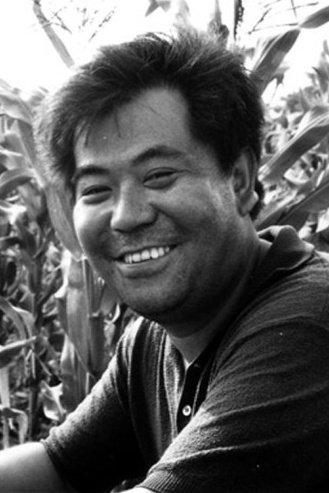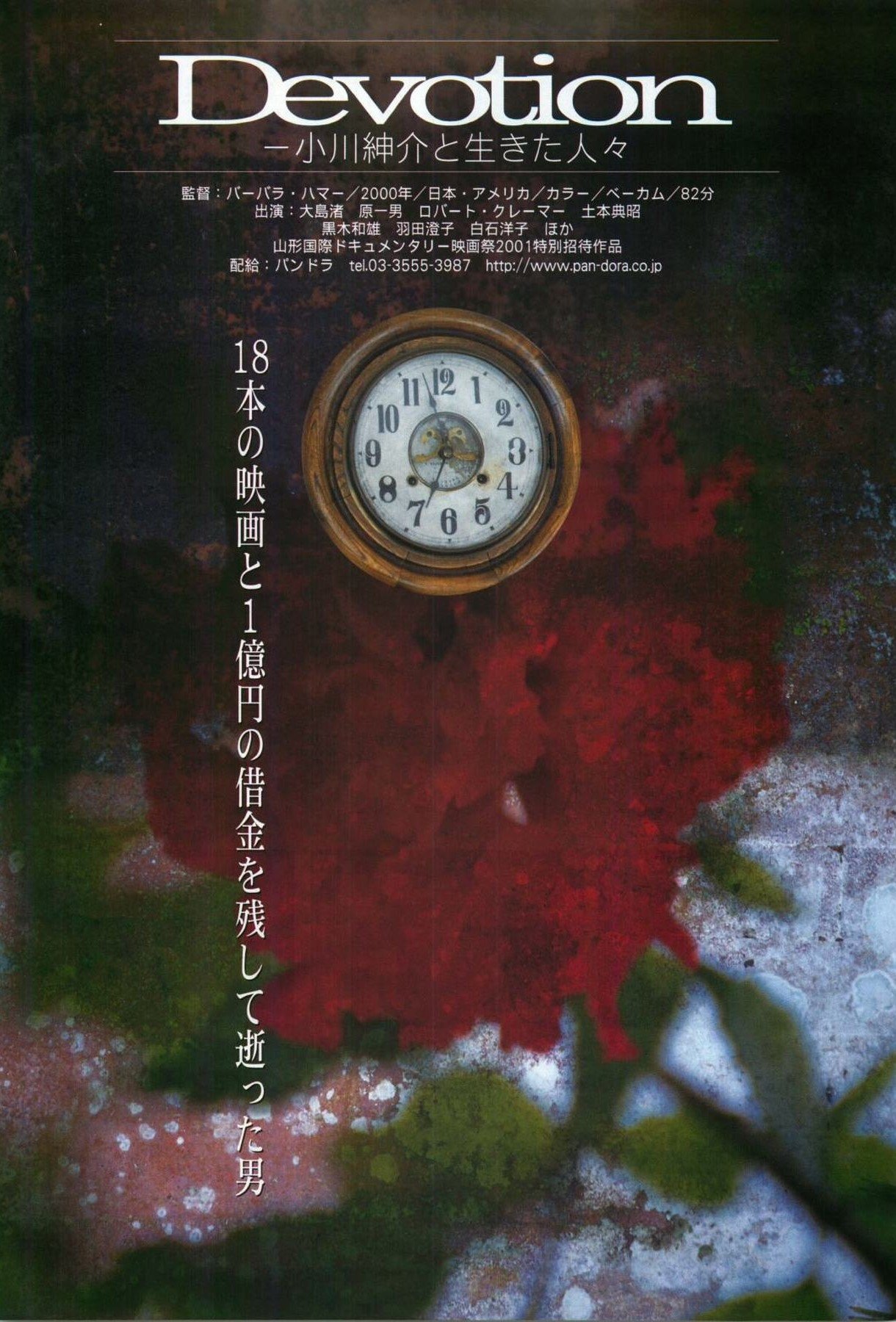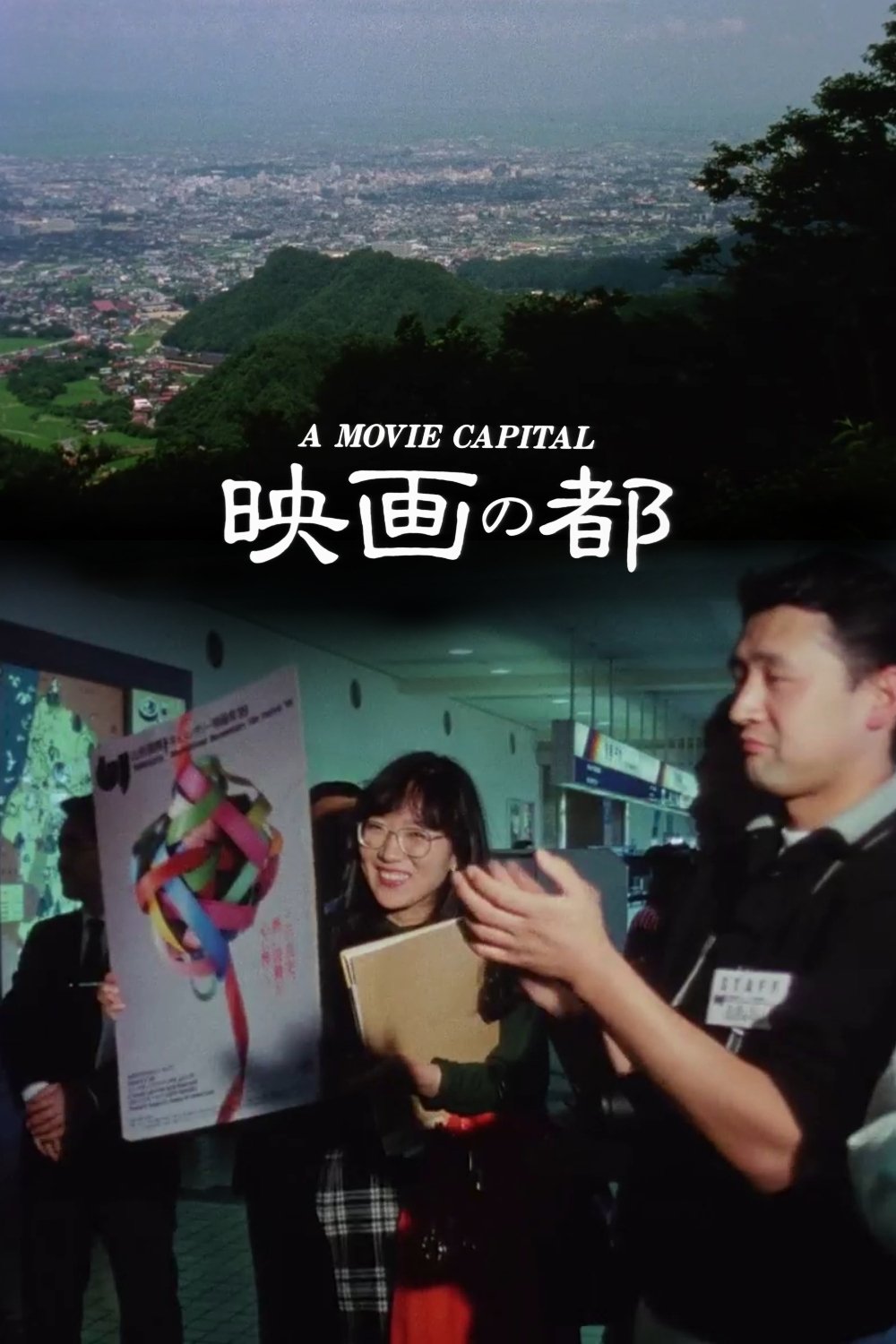

Devotion investigates the extremely complex and heirarchical relationships among a committed group of Japanese filmmakers who dedicated up to 30 years of their lives making films for one man-Ogawa Shinsuke. Members of Ogawa Pro filmed the student movement of the late 60's; the fight by farmers to save their land from government confiscaton for the Narita airport at Sanrizuka; and the village life of a small farming community, Magino Village, in northern Japan. These heartbreaking and sometimes funny stories have never been told on film before. Rare footage, stills, and diaries with interviews with Oshima Nagisa, Hara Kazuo and Robert Kramer make this historical inquiry visually exciting as well as valuable.

This film is a record of the first Yamagata International Documentary Film Festival. It reflects the various ways the festival was given shape by nascent global changes embodied by Perestroika, the Tiananmen Square massacre, and many other contemporaneous events.
Shinsuke Ogawa (小川紳介, Ogawa Shinsuke) (25 June 1935 - 7 February 1992) was a Japanese documentary film director. Ogawa and Noriaki Tsuchimoto have been called the "two figures [that] tower over the landscape of Japanese documentary." Ogawa began his career at Iwanami Productions (Iwanami Eiga) making PR (public relations) films alongside other important directors such as Tsuchimoto, Kazuo Kuroki, Yōichi Higashi, and Susumu Hani. Turning independent, he first made documentaries about radical political movements in 1960s and 1970s Japan, most famously the "Sanrizuka" or "Narita" series, which recorded the struggle by farmers and student protesters to prevent the construction of the Narita International Airport in Sanrizuka, Chiba Prefecture. He won the Directors Guild of Japan New Directors Award for Summer in Narita in 1970. Ogawa's was a committed form of documentary, which clearly took the side of those combatting unjust power. A growing sense that he did not understand the life of the farmers he was filming, however, led Ogawa and his crew, collectively called Ogawa Productions, to leave for Magino in Yamagata Prefecture where they spent decades filming the life and histories of everyday farmers while living with them and pursuing agriculture. He often worked with the cinematographer Masaki Tamura. The "Magino" films became the epitome of Ogawa's stance towards documentary: that one can only record a reality that one has been truly immersed in. Ogawa was influential in the creation of the Yamagata International Documentary Film Festival, where the top prize in the Asia program was named after him. The film Devotion by Barbara Hammer is about Ogawa Productions.
By browsing this website, you accept our cookies policy.